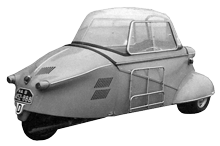In this session, Shunsuke Aoki, founder and CEO of Tokyo-based Yukai Engineering, shares the company's approach to creating emotionally resonant consumer robotics. Yukai, meaning "joy" in Japanese, aims to bring playfulness and emotional connection to everyday life through uniquely crafted devices. Aoki, a co-founder of TeamLab and Pixiv, discusses their product development philosophy, which centers around internal hackathons where all team members, regardless of their role, create working prototypes in two months. Aoki emphasizes two key rules for ideation: starting from personal fantasies rather than problems, and verifying ideas through prototyping. He illustrates this with the examples of Qoobo, a tail-wagging robot, and Amagami Ham, a small plush that gently nips fingers. These products originated from personal desires of team members to experience specific sensations or companionship.

After prototyping, Yukai brings their products to industry experts for feedback, which helps in determining pricing, sales channels, and design adjustments. For example, Qoobo's initial prototype led to a refined design suitable for interior design stores, and later, user feedback inspired the creation of a smaller version, Petit Qoobo, with added features like a microphone and a heartbeat sensation.
Aoki also introduces two newer products launched at CES 2025: Mirumi, a fuzzy robot designed to recreate the joy of interacting with a human baby, and Nekojita Fufu, a bear-tailed device that cools food. He highlights the importance of crowdfunding campaigns for launching products and involving early backers in the development process, demonstrating Yukai Engineering's commitment to user-centered design and emotional robotics.

A key takeaway from the session is that beauty itself can be considered a function. The act of bringing a smile to people's faces, though often overlooked as a practical utility, is an incredibly important and valuable outcome of design, for which Yukai sets a compelling example.



















